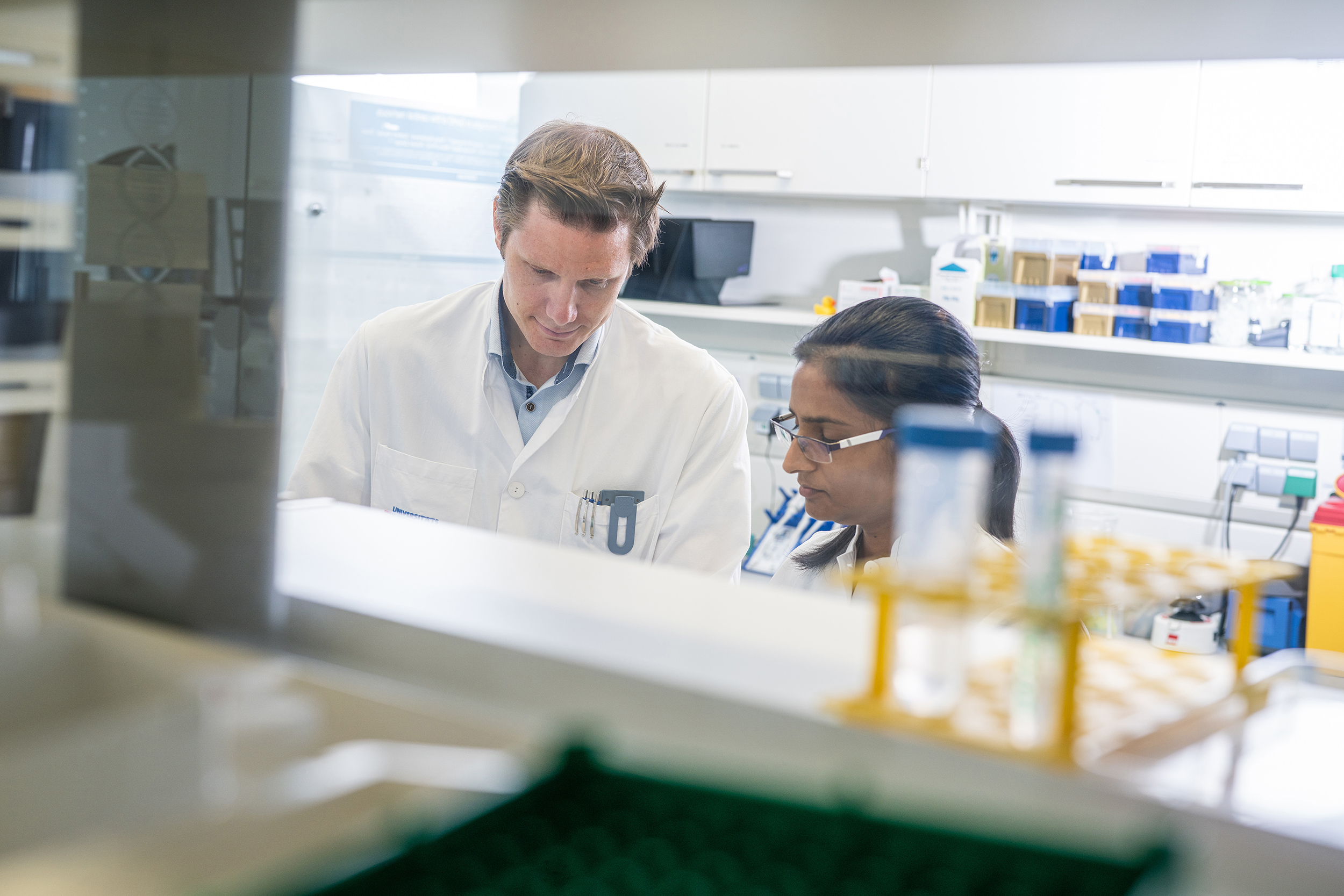Making immunotherapy for leukemia safer and more effective
Freiburg researchers have found a way to enhance the effect of cell-based CAR T-cell therapy in leukemia and reduce side effects / Publication in Nature Cancer

Activating the body's own immune cells against cancer in the laboratory: This is the principle behind CAR-T cell therapy, which is used very successfully for certain forms of cancer, such as acute lymphoblastic leukemia (ALL). However, the cancer sometimes recurs and some patients have neurological symptoms. Scientists at the Faculty of Medicine - University of Freiburg have now found a way to increase the effectiveness of CAR-T cell therapy in animal models and patient samples by inhibiting the signaling molecule TAK1 and at the same time reducing inflammatory reactions in the brain. The study was published on May 13, 2024 in the online journal Nature Cancer. Further studies must now clarify whether the approach is also safe and effective in humans.
"The treatment approach we have developed could be an important step towards helping many more cancer patients with CAR-T cell therapies," says Prof. Dr. Robert Zeiser, Head of the Department of Tumor Immunology and Immune Regulation in the Department of Medicine I at the Medical Center - University of Freiburg.
Side effects clarified at the molecular level
Together with Prof. Dr. Marco Prinz, Medical Director of the Institute of Neuropathology at the Medical Center - University of Freiburg, Zeiser was able to identify the cell type and the specific signaling pathway responsible for the excessive immune response after CAR-T cell therapy in ALL. The research teams led by Zeiser and Prinz showed that the signaling molecule TAK1 is involved in the activation of immune cells in the brain, known as microglia, as part of the inflammatory response following CAR-T cell therapy.
New treatment approach developed
By inhibiting TAK1, the Freiburg researchers were able to stop both undesirable effects, the growth and the inflammatory reactions in the brain. "In the next step, we want to test the safety and efficacy of this approach in patients," says Zeiser.
The activation of microglia in inflammation is being investigated as part of the Collaborative Research Center SFB/TRR 156 "NeuroMAC" (spokesperson: Prinz). The combination of immunotherapy with the inhibition of cancer-promoting signals is a concept that is being investigated as part of the SFB1479 "OncoEscape" (spokesperson: Zeiser). Zeiser and Prinz are also researching the principles of signal transduction as part of the Centre for Integrative Biological Signalling Studies (CIBSS) Cluster of Excellence at the University of Freiburg.
Original title of the study: Targeting TGF-β-activated kinase-1 activation in microglia reduces CAR T immune effector cell-associated neurotoxicity syndrome
DOI: 10.1038/s43018-024-00764-7
Link to the study:https://www.nature.com/articles/s43018-024-00764-7
Caption: Study leader Prof. Dr. Robert Zeiser discusses test results in the laboratory with first author Dr.Janaki Manoja Vinnakota.
Image source: Medical Center - University of Freiburg / Britt Schilling
Back
Medical Center - University of Freiburg
Central Information
Phone: 0761 270-0
info@uniklinik-freiburg.de
For press inquiries:
Corporate Communications
Breisacher Straße 153
79110 Freiburg
Phone: 0761 270-84830
kommunikation@uniklinik-freiburg.de

